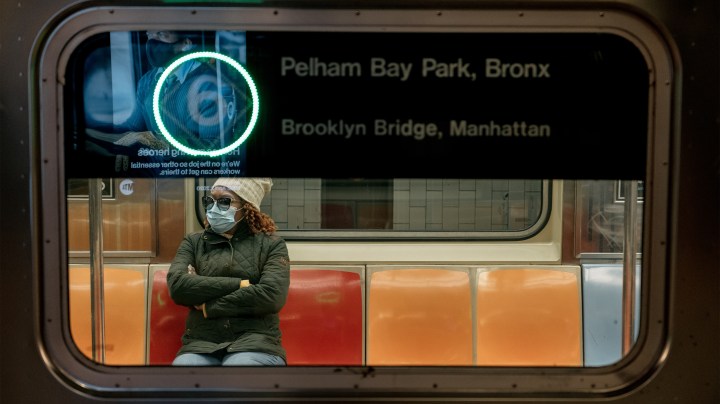
NYC’s overnight subway shutdown leaves essential workers stranded
NYC’s overnight subway shutdown leaves essential workers stranded

Like the city that never sleeps, New York’s transit system is a 24/7 operation. At least, it was. As of last night, the subway is shutting down nightly between 1 and 5 a.m. for cleaning. Who rides the subway during those hours? Essential workers: the nurses, janitors and convenience store workers who keep businesses going.
Overnight workers like Bobby Daubert unload trucks and restock shelves. Daubert lives in Brooklyn and works at a market eight miles from his house. He usually takes the subway for 30 minutes.
Today, however, he took the bus, which made 26 stops. The bus was completely full, with no room for social distancing. Then he had to walk half a mile. The commute took an hour and, without the trains, it’s the only way he can get to work. Daubert checked Uber this morning, just in case, and the fare was $35. With hazard pay, he makes $18 an hour.
“I mean, if it wasn’t for public transportation, I wouldn’t have a job right now,” Daubert said.
The transit authority says 11,000 people have been riding the trains in the early morning hours during stay-at-home orders. During the subway shutdown, it’s giving essential workers who can’t access buses a free nightly car ride.
But for now, Daubert and people like him will have to find other ways to get to their jobs.
“By and large, those are essential workers with especially long and difficult commutes,” said Danny Pearlstein, policy and communications director at Riders Alliance. He said the majority of people who ride the subway late are “super-commuters” — workers who travel 90 minutes or more. And that’s during normal times.
“New Yorkers have organized our lives around the fact that you can get anywhere in the city at any time of day or night by public transit,” Pearlstein said.
The city’s massive economy depends on the subway. And Sarah Kaufman, associate director at the NYU Rudin Center for Transportation, said so does the city’s identity.
“Right now, having a subway that doesn’t run 24/7 brings that into question,” Kaufman said.
She said this could make people question whether New York needs a 24-hour subway, even in a post-pandemic world. And without those late-night rides, some of the industries that anchor New York, like nightlife, would change, too.
There’s a lot happening in the world. Through it all, Marketplace is here for you.
You rely on Marketplace to break down the world’s events and tell you how it affects you in a fact-based, approachable way. We rely on your financial support to keep making that possible.
Your donation today powers the independent journalism that you rely on. For just $5/month, you can help sustain Marketplace so we can keep reporting on the things that matter to you.












